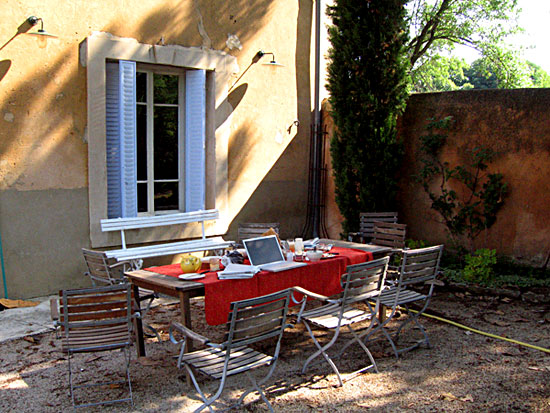It’s over. But what madness overtook Zidane? Here is the moment as recorded in Rob Smyth’s Live Blog of the match.
109 mins: ZIDANE SENT OFF FOR STICKING THE HEED [sic] ON MATERAZZI!!
Oh. My. God. In his final professional match, Zidane had been sent off for a disgraceful headbutt on Materazzi. He just rammed his head into Materazzi’s chest; it was really firm and nasty. Horrible. Now that really is a headbutt. It was also completely off the ball and at first it seemed he’d got away with it, but after talking to his assistant – and possibly after an intervention from the fourth official – the referee was alerted to what happened, and sent Zidane off. He has always had a nasty streak, but this was just ridiculous. What on earth did Materazzi say to provoke that? Either way, it was a disgusting, nasty, blackly comic headbutt, delivered with a Hitchcokian suddenness, and it’s an unbelievable ending to Zidane’s lustrous career. It was a JFK moment and a GBH moment rolled into one oh-my-giddy-aunt moment. And he could still end up lifting the World Cup!
He didn’t. But it was such a terrible end to a great career. Mind you, one look at Mathias Breschler and Monika Fischer’s astonishing large-format portrait of Zidane would convince anyone that he’s not the kind of guy you’d like to meet on a dark night.
Now that’s it’s over (the tournament, that is), here’s the strangest thing of all. During the entire duration of the footyfest, which supposedly gathered the best footballers in the world into small patches of Germany, there was only one truly outstanding match — that between France and Brazil. I watched many of them with my laptop perched on my knee, and that was the only match which seriously diverted my attention from email, browsing, blogging and work.

